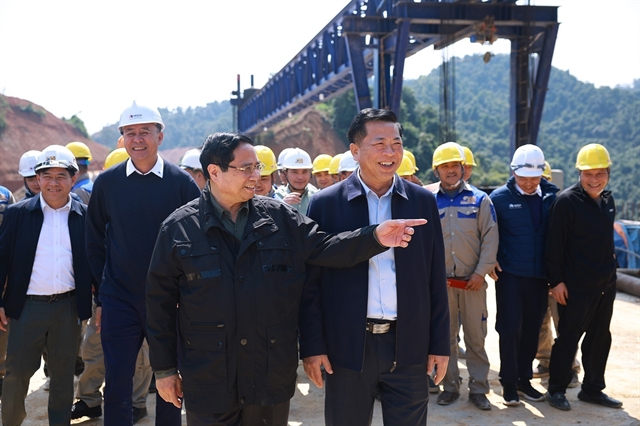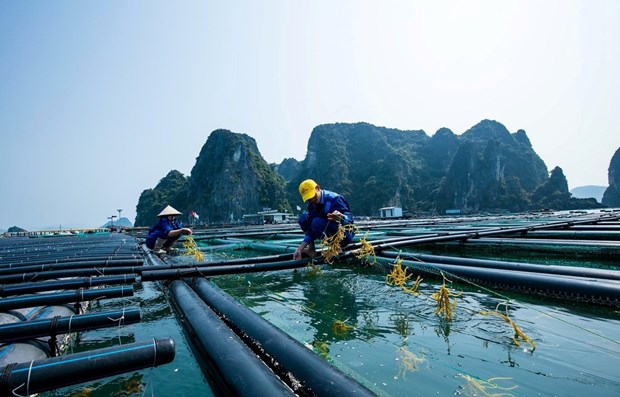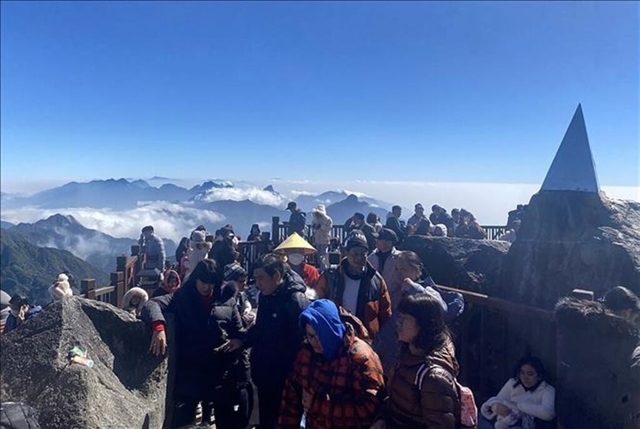 Society
Society

 |
| A marine aquaculture model on Phất Cờ island, Quảng Ninh Province. — VNA/VNS Photo |
QUẢNG NINH — Quảng Ninh Province has outlined a vision to restructure the agricultural sector in the 2022-25 period, focusing on agroforestry and aquaculture, with a strategic selection of products that leverage regional strengths.
The overarching goal is to develop markets, establish supply chains that integrate technology, and create a cohesive, sustainable agricultural economic ecosystem.
This transformation is closely linked with tourism, services, commerce, new rural development, industrialisation, modernisation, disaster resilience and climate adaptation.
In a strategic move to accomplish set goals, the province has committed substantial resources to establish production models where farmers play a pivotal role.
This approach places farmers as key drivers while the Government takes on a supportive role to facilitate their journey from poverty to prosperity.
Building on this foundation, a unified effort is underway to strengthen knowledge and improve farming skills among local farmers.
Nguyễn Minh Sơn, director of the provincial Department of Agriculture and Rural Development, said the agricultural sector has collaborated annually with relevant units to organise training sessions, disseminate knowledge and introduce new agricultural technologies to farmers, focusing on the application of scientific and technological advancements in production.
They also ensure a comprehensive understanding of the Sagricultural policies and legal framework, and provide guidance to farmers on how to leverage their internal capabilities to drive economic restructuring and labour transformation, including transitioning crop varieties and livestock.
In a series of training sessions, local farmers have made significant strides in adopting modern farming techniques and innovative production models.
Notable achievements include the utilisation of technology to carefully select high-quality crop varieties, ranging from Taiwanese guava, golden tea and Yên Tử apricots to Tiên Yên chicken, ginger, tea and premium-quality rice.
Moreover, they've refined their abilities in employing preservation and processing technologies, enhancing the value of seafood products like clams, jellyfish and fish sauce.
Modern and safe farming methods have gradually replaced traditional agricultural practices.
The emphasis has shifted towards prioritising the quality of agricultural products to establish long-lasting and sustainable value. In Hải Hà District, local authorities are actively promoting the transition to newer, disease-resistant tea varieties.
The transition is facilitated through comprehensive support, training and technology transfer to encourage residents to replace older, low-yield and low-quality tea varieties.
The goal is to increase the rate of new tea varieties to over 85 per cent of the total tea cultivation area throughout the district by 2030.
Chung Văn Tắc, a resident from Quảng Long Commune, said transformative strategies and revised policies in tea cultivation and processing have empowered local households engaged in tea farming.
They have actively embraced training programmes and benefited from support to align their cultivation and processing methods with VietGAP standards, increasing productivity, crop quality and creating sustainable value for the tea-growing region, also providing economic stability for the local farmers.
In recent years, advanced agricultural production models have become increasingly familiar to local farmers.
From soilless vegetable gardens to automated farms and integrated supply chain production, these represent the initial successes of farmers who have incorporated technology into their production processes.
Particularly, in this age of rapid digital advancements, many farmers have proactively joined e-commerce platforms to sell and promote their products, especially those recognised under the "One Commune, One Product" (OCOP) programme.
According to statistics, the entire province currently has over 1,000ha of agricultural production that adheres to VietGAP standards. There are 416 establishments applying advanced quality management programmes such as GMP, SSOP or HACCP.
Additionally, there are 19 fruit-growing areas, five fresh fruit packaging facilities, and nine seafood export companies that meet the requirements for exporting to the Chinese market.
The province also maintains 16 certified safe food supply chains encompassing 59 product categories. — VNS

.jpg)


